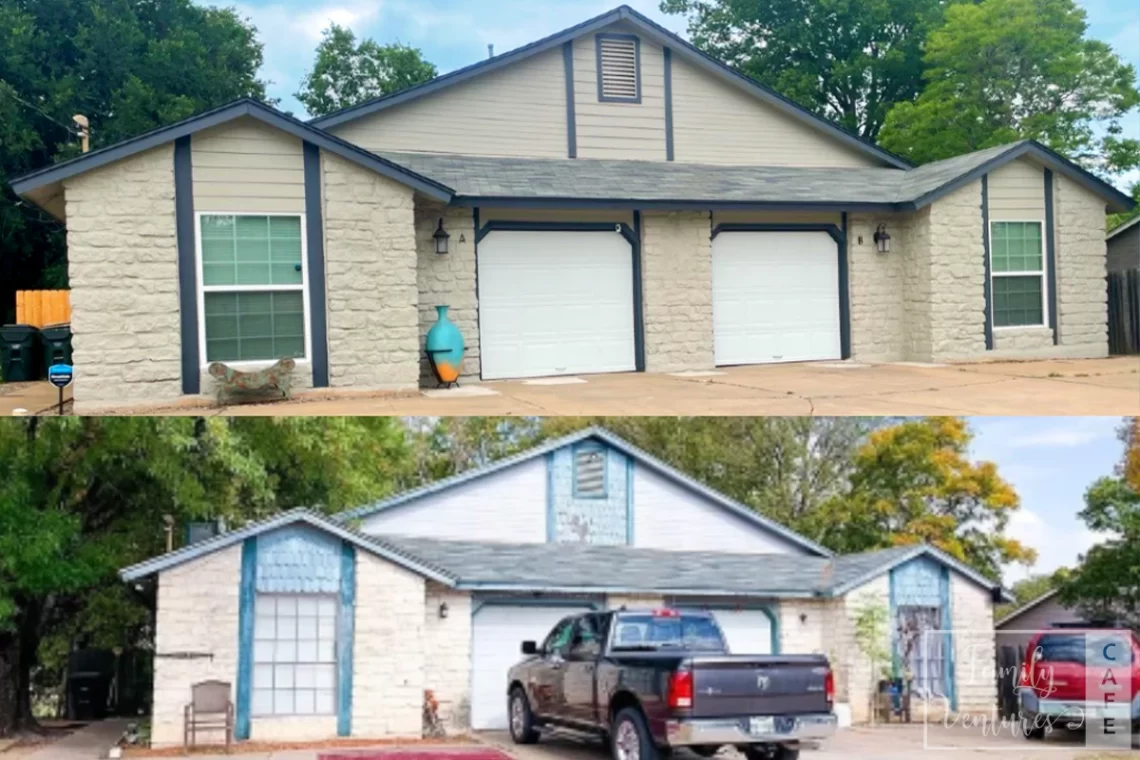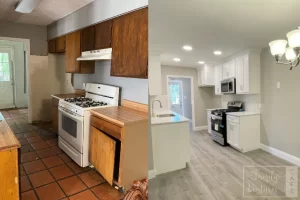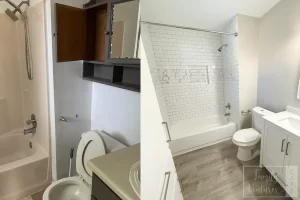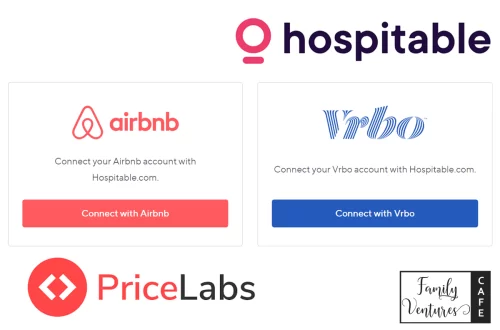
Georgetown Duplex
The second property we bought was this Georgetown duplex. We had decided to get into the real estate world and, after considering our options, we both agreed on the best strategy we should pursue.
We decided to turn the single-family home where we were living at the time into a long-term rental. Check the details here. We bought this duplex intending to move to one side, rent the other one, and live rent-free. This was our very first incursion into buying an investment property. With that purpose in mind, we were convinced that buying a good deal and holding onto it using the house-hacking strategy was the best way to grow our portfolio.
Buy and Hold
The buy-and-hold strategy is probably the most common and, in our opinion, the most important one. We have it in such a high position because it gives access to most or all the four wealth generators: cash flow, appreciation, loan pay down, and tax benefits. As its name suggests, this strategy involves purchasing a property and keeping it for an extended period of time while renting it out.
Buying a duplex allowed us to “house hack” without having to share our home with strangers. Because of that advantage, this strategy is very popular among couples starting in the real estate world. Compared to house-hacking by renting a room at your residence. We were able to buy the duplex with an FHA loan. Thanks to the 3.5% down payment this loan offers, we only had to come up with a little money out of pocket for the purchase.
House-Hacking
House hacking is one of the most popular strategies for first-time real estate investors and is a strategy we are currently using.
House hacking consists of purchasing any residential property, using one unit or room to live in, and renting out the other units or rooms. If purchasing a great multifamily deal, the rent that your tenants pay each month can cover all the expenses for the property and maybe more. The same can be accomplished in a single-family home by having roommates. It all depends on your situation and what you feel comfortable with.
The Duplex
Initially, we tried to use an FHA 203K loan since the house needed a lot of repairs. The process for a 203K loan is a bit different and not all banks offer this type of service. We found a bank following the recommendation of another lender.
The first lesson learned (the hard way) is that you need a HUD inspector. Finding one can be a nightmare depending on the city where the house is located. There are only a few inspectors licensed with HUD in our area. We ended up with almost no options and paying a high fee for one of the few available ones. To their regular pricing, usually higher than regular inspectors, you need to add an extra charge for the report the bank requires to process the 203K loan. Our mistake was that we paid for a regular inspector and later paid again for the HUD inspection. Do your due diligence in advance if this type of loan is within your scope. Have the initial inspection done by the HUD inspector. You will be able to save a few bucks.

We learned several other things during the whole process. One important lesson is to be ready for sewer line breakouts after foundation repair. Budget for that in advance. After repairing this duplex’s foundation we had 3 sewer lines breakout. Which was close to $3000 in repairs. Another important thing we learned is that if you plan to do some repairs yourself because you are good at that type of work, please budget and plan for the time it will take you. Sometimes you can save more by just paying someone to do the job and having the house ready earlier. This was one of the reasons our rehab took longer than expected.
Financing
In the end, we could not buy this duplex using an FHA 203K loan because the house did not appraise for the necessary amount to be able to do a 203K without putting more money out of pocket.

Therefore, we decided to finance the purchase using a standard FHA. In the end, this worked in our favor as we were able to save some money for the repairs. We used credit cards with a very low to 0% interest rate, using some incentives and promotions. We also used our own money on most of the repairs, and a small private lender’s money with whom we worked a 10% interest rate. This way we saved some money on interest compared with the interest we would have had to pay if we used an FHA 203K.
Our returns on investment are not going to be super high, just around 10%, however, since we are house hacking, we have been able to increase returns by decreasing our previous biggest expense, our mortgage payment.
The house in numbers:
6 bed – 4 bath – 2100 sqft
Purchase date: March 16, 2021
Purchase price: $280,000 with $5000 seller paid towards closing costs.
Finance: FHA 3.5% Down payment – Interest rate 2.75%
Mortgage + taxes + insurance + PMI = Monthly Cost: $1959
Biggest repairs completed: LVP flooring, drywall repair, new windows, doors, bathroom and kitchen cabinets, quartz countertops, and concrete patio.
Repairs Approximated Cost: $95,000
Refinance date: December 1, 2021
Refinanced Amount: $286,000 (refinance costs included) Rate: 3.5%
Mortgage + Taxes + Insurance = Monthly Cost: $1866
Monthly Rent: $1900/mo
ARV: $490K
* All values are approximations






